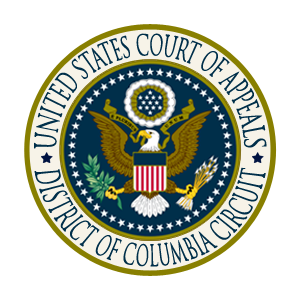Originally published on Forbes.com July 30th, 2014
The Patient Protection and Affordable Care Act (Obamacare) has withstood another challenge. The United States Court of Appeals for the District of Columbia Circuit issued its opinion in the case of Matt Sissel v HHS.
Mr. Sissel is an artist and small business owner, who from time to time is on active duty with the National Guard. He was arguing that the requirement that he buy health insurance violated the Commerce Clause and that the “shared responsibility payment” violated the Origination Clause.
Mr. Sissel had indicated that he did not have, need or want health insurance and that he could pay for his medical expenses out of pocket. The act requires him to purchase federally approved health insurance or pay the “shared responsibility payment”.
The Court ruled that the Supreme Court decision in National Federation of Independent Business had taken care of the Commerce Clause exception.
Although the Chief Justice stated that the individual mandate “would … be unconstitutional if read as a command,” he concluded that it is not unconstitutional as beyond the scope of Congressional authority because it “can reasonably be read” as not imposing a command. The Court’s decision to sustain the constitutionality of the whole of Section 5000A under the taxing power necessarily disposes of Sissel’s Commerce Clause claim.
So it was not a mandate, really. It is a tax, which gave Mr. Sissel another opening. Bills to raise revenue are supposed to start in the House of Representatives (Origination Clause). Mr. Sissel’s reading of the legislative history indicated that there was a tax bill that started in the House, that had nothing to do with health care. The Senate gutted that bill and put in the Affordable Care Act. So really, the bill started in the Senate.
Apparently, we won’t have to sort through that legislative mishegas, because the Court ruled that even though the mandate is a tax, it is not designed to raise revenue, even though it may raise quite a bit of revenue.
Because we conclude that the shared responsibility payment in Section 5000A is not a “Bill[] for raising Revenue” within the Supreme Court’s accepted meaning of that phrase, and thus was not subject to the Origination Clause, this court has no occasion to determine whether it originated in the House or the Senate.
I have to say that I have a little bit of trouble following the reasoning.
In sum, under Supreme Court precedent, the presence of another constitutional power does not suggest that a provision is not a “Bill[] for raising Revenue,” and the absence of another constitutional power does not, in itself, suggest that it is. Because the existence of another power is not necessary (or sufficient) to exempt a bill from the Origination Clause, the mere fact that Section 5000A may have been enacted solely pursuant to Congress’s taxing power does not compel the conclusion that the entire Affordable Care Act is a “Bill[] for raising Revenue” subject to the Origination Clause. Where, as here, the Supreme Court has concluded that a provision’s revenue-raising function is incidental to its primary purpose, the Origination Clause does not apply. The analysis is not altered by the fact that the shared responsibility payment may in fact generate substantial revenues.
I think if I was a Constitutional purist, I would be a little disturbed by the twists and turns of logic here. Constitutional purists are I think rather rare. Activists and advocates tend to use the Constitution like a drunk uses a lamppost – more for support than illumination.
You can follow me on twitter @peterreillycpa.































































































